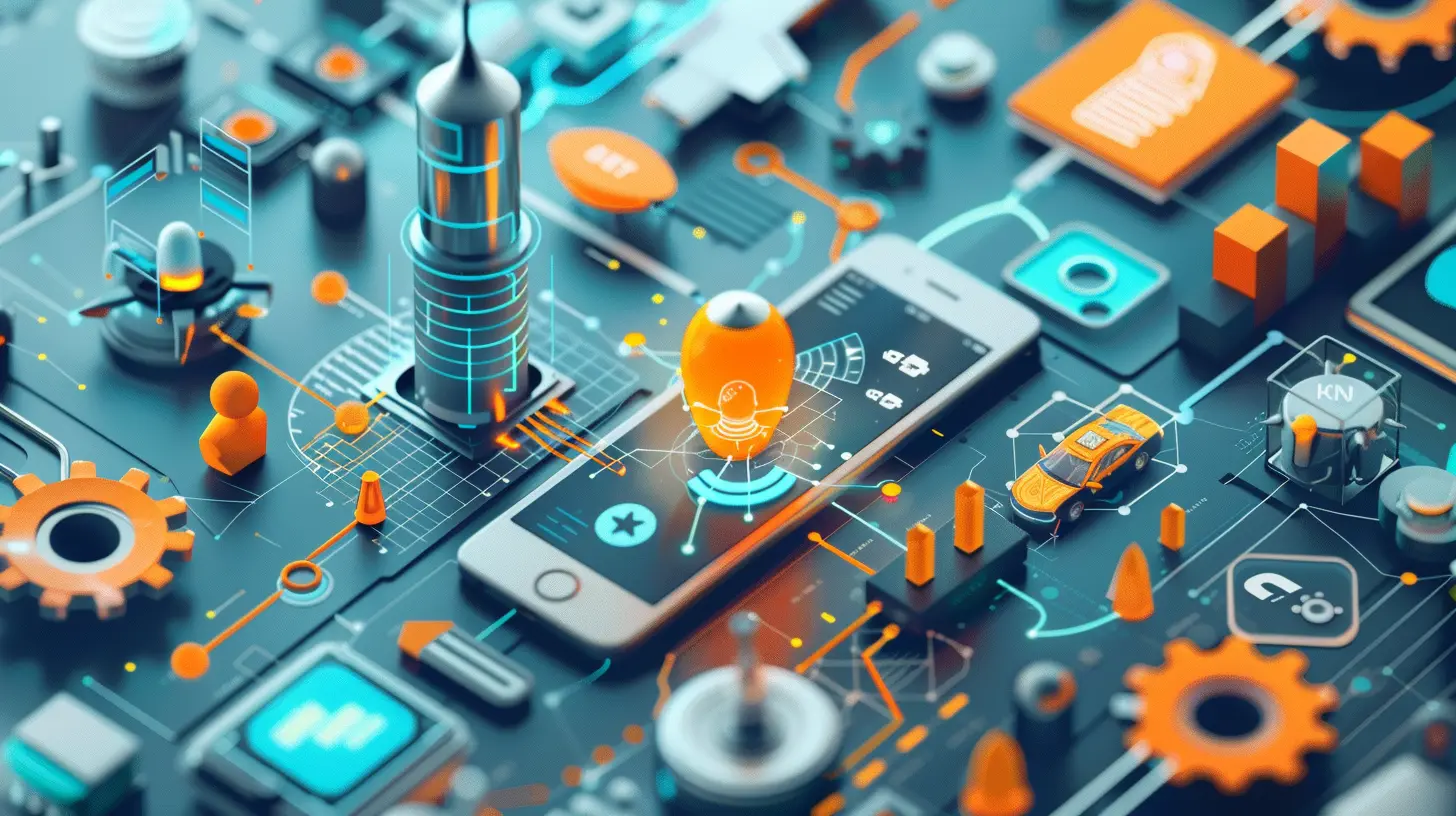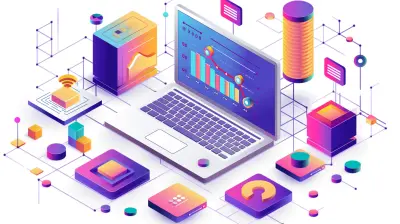How Startups Are Transforming Traditional Industries
24 October 2025
Let’s imagine for a second that traditional industries are like your favorite pair of old, comfy jeans. They’ve been around forever, they’ve seen some serious action, and they’ve got a timeless vibe—until, well, someone shows up wearing the latest trend and suddenly, your denim feels… outdated. That’s what startups are doing to traditional industries—shaking things up, flipping the script, and breathing fresh life into age-old practices.
But how exactly are these newcomers rewriting the playbook for industries that have been around longer than your grandparents’ vintage tea set? Grab your coffee (or tea, no judgment here) because we’re about to unpack it all—and trust me, it’s way more exciting than watching paint dry. 
Startups vs. Traditional Industries: A Tale as Old as Time (Sort Of)
Traditional industries—think farming, banking, healthcare, transportation, and manufacturing—have long been the backbone of society. Sure, they’ve gotten by on “tried-and-true” methods for centuries, but honestly, some of their models were starting to look like that dial-up internet we all left behind in the early 2000s.Enter startups. These scrappy, no-holds-barred disruptors didn’t just stroll into these industries—they cannonballed into the deep end, armed with tech innovation, nimble ideas, and let’s face it—a touch of audacity. And guess what? It’s working.
Here’s how they’re pulling off this industry remix. 
1. Unleashing the Tech Beast
Startups and technology are basically BFFs. They’ve figured out how to use AI, machine learning, blockchain, and other sci-fi-sounding tools to solve problems traditional industries didn’t even know they had.For example:
- Agriculture Goes High-Tech: Startups like Indigo Ag are revolutionizing farming by using data analytics and AI to improve crop yields while reducing environmental impact. Yep, they’re literally making farming smarter. Think of it as agriculture meets The Matrix.
- Banking Gets a Facelift: Fintech startups like Robinhood and Revolut have turned the banking world on its head. No more waiting in endless lines at the bank; now, you’ve got full control of your finances in the palm of your hand. It’s like having your own mini Wall Street in your pocket.
Traditional industries? They’re watching, taking notes, and frantically Googling “how to catch up.” 
2. Customer-Centric Solutions
Let’s be real—traditional industries had a tendency to treat customers like an afterthought. Sure, they provided goods and services, but “user experience” wasn’t exactly their mantra.Enter startups, who actually listen to customers. Shocking, right? They prioritize user-friendly solutions, personalization, and convenience.
Take healthcare, for instance. Startups like Zocdoc let you book doctor appointments online within minutes—something that previously felt as complex as assembling an IKEA wardrobe. They’ve turned an industry notorious for red tape into a seamless experience. 
3. Flexibility Is the Name of the Game
Startups are like those friends who can book a last-minute road trip without breaking a sweat. They’re adaptable, agile, and quick on their feet.Traditional industries, on the other hand, often operate more like that one friend who needs a two-week heads-up before making plans. Their rigid hierarchy and bureaucratic processes make innovation feel like wading through molasses.
Take the delivery industry. While legacy courier services take days to deliver packages, startups like DoorDash and GoPuff operate at warp speed, delivering meals, groceries, and even toilet paper (because sometimes life happens) in under an hour.
They’ve got the logistics down to a science—and traditional players are struggling to keep up.
4. The Power of Branding and Storytelling
Have you ever noticed how startups just get branding? They don’t just sell products—they sell a story, a vibe, a lifestyle. They’re like the cool kids at the lunch table who somehow make everything look effortless.Take Warby Parker, for instance. This eyewear startup turned the traditionally mundane experience of buying glasses into something chic, affordable, and downright Instagrammable. Meanwhile, legacy eyewear companies are still fumbling with price tags that make people squint harder than their prescription.
Traditional industries are slowly beginning to realize that a good story—and a killer social media strategy—can go a long way.
5. Sustainability Matters
Let’s talk about the elephant in the room: sustainability. For decades, traditional industries largely ignored their environmental impact, but startups? They’re tackling it head-on.Whether it’s companies like Beyond Meat, challenging the meat industry with plant-based alternatives, or startups like Tesla, paving the way for an electric future, eco-conscious innovation is at the forefront. They’re proving that making money and saving the planet can (and should) go hand-in-hand.
Traditional industries are starting to catch up, but it’s clear who’s leading this green revolution.
6. The Rise of the Gig Economy
Startups didn’t just disrupt industries—they created entirely new ones. Case in point: the gig economy.Thanks to platforms like Uber, Lyft, and Fiverr, traditional notions of employment have been turned on their head. Instead of being tied to a 9-to-5 desk job, people now have the freedom to work how, when, and where they want.
Of course, this has sparked debates about job stability and workers’ rights, but there’s no denying the cultural shift these startups have ignited.
7. Collaboration Crushes Competition
One of the coolest things about startups? They’re not afraid to partner with traditional companies.Instead of treating legacy players like the enemy, many startups see them as allies. They bring fresh ideas to the table, while traditional companies bring years of experience and resources. It’s the ultimate “you scratch my back, I’ll scratch yours” scenario.
For instance, healthcare startups are collaborating with established pharmaceutical giants to accelerate drug development. Or fintech startups teaming up with banks to improve digital payment platforms. It’s like peanut butter and jelly—better together.
Are Startups Completely Taking Over?
Now, before we get carried away, let’s pump the brakes. Are startups singlehandedly overthrowing traditional industries? Not exactly.While they’ve made incredible strides, there’s still a role for legacy players. After all, startups often rely on traditional infrastructures (you can’t reinvent the wheel without the wheel). But one thing’s for sure: startups are forcing traditional industries to evolve—or risk becoming obsolete.
The good news? This competition is driving progress, innovation, and better outcomes for all of us. It’s like healthy sibling rivalry, except instead of arguing over who gets the last slice of pizza, we all win.
Final Thoughts
Startups are like the quirky underdogs of the business world—unpredictable, ambitious, and kind of brilliant. They’re not afraid to take risks, reimagine norms, and challenge the status quo.Traditional industries may have history on their side, but startups? They’ve got the future. And if this wave of disruption is anything to go by, it’s going to be one heck of a ride.
So, the next time you marvel at self-driving cars or book a last-minute Airbnb that’s somehow cheaper than your grandma’s guest room, just remember—this is the magic of startups transforming traditional industries. And honestly? The world’s better for it.
all images in this post were generated using AI tools
Category:
Business TrendsAuthor:

Caden Robinson
Discussion
rate this article
1 comments
Brianna McWilliams
This article compellingly illustrates how startups are not only innovating but also catalyzing disruption in traditional industries. By embracing technology and agile practices, these newcomers challenge established norms, drive efficiency, and enhance consumer experiences, ultimately reshaping market dynamics and prompting incumbents to adapt or risk obsolescence.
November 2, 2025 at 3:26 AM

Caden Robinson
Thank you for your insights! I appreciate your perspective on how startups are reshaping industries through innovation and agility. It's an exciting time for market dynamics!


